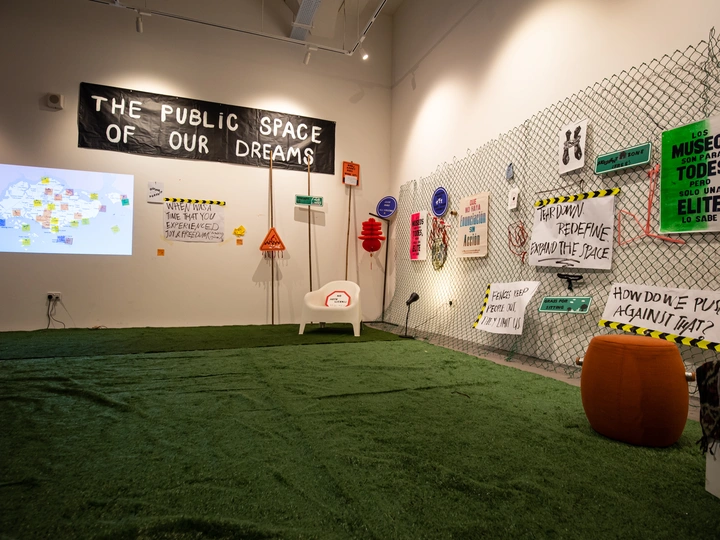MUSEOGRAPHICAL CAMP x Museum Justice Movement

Museum specialist, cultural worker , activist, exhibit designer and community curator and based in Spain / Argentina with background in cultural management, and social museology. She holds a BA in Exhibition Design and Museum Studies from UMSA (2020), and a Diploma in Latin American Social Museology from UNC (2017). Her practice focuses on the intersections between curating, education, and social justice, working across institutional and grassroots contexts.
She has held positions at the Ministry of Culture of Argentina, Museo de América (Spain), Museo de la Ciudad (Ecuador), and the Central Market Museum in Buenos Aires, developing community-driven exhibitions, public programs, and international collaborations.
Johanna has participated in fellowships and residencies in South Korea, Singapore, Ecuador, and Spain. In 2024, she was awarded the “Best Project Proposal” by KOFICE for her work on indigenous narratives and design thinking. In 2022, she co-created a community art installation during the Singapore Biennale. Her work has also been part of the Educathyssen program (Madrid) and sustainability-focused residencies in Argentina.
Currently, she teaches at the National University of the Arts (UNA) and collaborates with the University of Valencia’s MA in Art and Mediation. She is the founder of the Museum Justice Movement, a platform to explore experimental and inclusive approaches to cultural institutions.
Museographic Camp is a replicable and scalable tool for civic engagement in cultural institutions. It responds to current urgencies like social fragmentation, institutional distrust, and the crisis of representation by activating spatial culture not only as form, but as method and medium for social transformation.
It will take the form of a scaffold-built camp installed in public space near a museum and proposes to reimagine exhibition design as a shared, situated, and conflict-aware process. Rather than starting with a fixed narrative, the camp invites the community to identify a problem or absence in the selected museum’s storytelling and, through collaborative workshops, prototyping, and discussion, co-develop collective responses that address the problem.
Museum Justice Movement is a project that reimagines other forms of making museums. How can museums move beyond performative gestures of participation and actually embody co-creation as a structural practice? This is a way to inhabit the gap between institutional discourse and real community agency. Museographic Camp emerge as both critique and possibility.
The camp’s strength lies in its adaptability, dialogical nature, and emphasis on hands-on thinking. It proposes a methodology anchored in design thinking and critical pedagogy, structured around three stages: Observation (community listening), Campfire (Processing and transformation), and Collective Dawn (Public sharing). Each phase is embodied spatially, materially, and collectively, using the evolving structure of the camp to reflect shared decisions.
Its potential impact lies not in producing perfect solutions, but in creating spatial and emotional conditions for deeper listening, negotiation, and belonging. The camp is a prototype in itself—a scaffolded space for community curatorial processes that will reutilize disposable materials from the museum, like old banners and used floor maps.